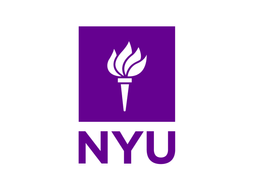6 Data Science Extracurriculars for Middle School Students
In the age of data, it is evident that data science is a crucial field to specialize in. Data science merges mathematics, programming, and analytical thinking. It is a rapidly growing field that overlaps with other STEM subjects and offers options for future careers. If you’re curious about this subject, pursuing data science extracurriculars during middle school offers many advantages.
First, it cultivates problem-solving and analytical skills, essential for success in any field. Secondly, developing your academic skills and knowledge can lay a strong foundation for success in high school. Studies show that students involved in STEM extracurriculars perform better academically and are more likely to pursue STEM degrees. Lastly, participating in these activities showcases your ability to apply knowledge outside the classroom.
If you’re interested in data science, here are 6 extracurriculars tailored for middle schoolers:
1. Join a data analysis club at school
Participating in a data analysis club is an excellent introduction to data science. These clubs will help you explore statistics, visualization, and basic programming in a collaborative environment. They are an accessible way to work on real-world projects. They also introduce critical thinking and teamwork.
What you’ll do:
Analyze datasets using tools like Excel, Google Sheets, or Python.
Work on projects such as tracking sports statistics, visualizing environmental data, or studying school trends.
Present findings in creative formats or participate in competitions.
Things to keep in mind:
Difficulty Level: Beginner
Location: School-based or virtual clubs
Resources/Experience Required: Basic math skills; access to software (Excel, Google Sheets, etc.)
2. Participate in online data science boot camps
Online boot camps offer structured courses that introduce data science fundamentals. These programs can include mentoring, hands-on projects, and flexible learning schedules. This is a great choice because boot camps provide guided learning, making them ideal for motivated students. Programs like Veritas AI's AI Trailblazers or Data Science for Kids are great opportunities to boost your learning and exposure.
What you’ll do:
Learn Python or R for data analysis.
Explore topics such as data cleaning, visualization, and basic machine learning.
Complete guided projects and receive feedback from instructors.
Things to keep in mind:
Difficulty Level: Beginner to intermediate, depending on the course you choose to enroll in.
Location: Online platforms
Resources/Experience Required: Computer and internet access; familiarity with basic coding concepts. More advanced courses can have more stringent prerequisites.
3. Work on a personal data science project
Creating your own data science project is a fantastic way to explore your interests. Personal projects demonstrate initiative and creativity—highly valued by educators and potential mentors. Personal projects allow you to tailor learning to your interests, whether in sports, the environment, or social issues. This helps you build problem-solving skills and independence.
What you’ll do:
Collect data from public sources like government websites or APIs.
Use beginner-friendly tools like Jupyter Notebooks for analysis.
Present findings through graphs, reports, or interactive visualizations.
Some examples:
Analyze local weather data for patterns.
Build a simple recommendation system for books or movies.
Visualize survey results from your school or community.
Things to keep in mind:
Difficulty Level: Beginner to Intermediate
Location: Home-based
Resources/Experience Required: Online tutorials; beginner coding tools
4. Enroll in a virtual data science mentorship program
Mentorship programs connect you with experienced professionals who guide you through data science topics and projects. These programs have the benefit of offering personalized learning tailored to your interests and skill level. Mentorship provides expert guidance you would not otherwise have access to, helping you delve deeper into data science. These programs also introduce you to potential career paths and networking opportunities.
Examples: Programs like the Lumiere Research Scholar Program mentor students on research projects and data science topics.
What you’ll do:
Collaborate with a mentor on data science projects.
Explore advanced concepts under expert supervision.
Present work in professional formats.
Things to keep in mind:
Difficulty Level: Intermediate to Advanced
Location: Online or in-person
Resources/Experience Required: Application process; basic knowledge of coding or math
5. Enter data science competitions
Competitions allow you to apply data science skills to real-world challenges. They provide datasets and problem statements for you to solve in teams or as a solo participant. Competitions help you develop teamwork, critical thinking, and problem-solving skills. They’re an excellent way to meet peers with similar interests. Platforms like Kaggle Junior Challenges and Scratch Olympiad host beginner-friendly events, but you can get started even with events at your high school or in your local area. Check out our list of 8 data science competitions for middle school students!
What you’ll do:
Analyze provided datasets.
Collaborate with teammates to develop solutions.
Compete for awards or recognition.
Things to keep in mind:
Difficulty Level: Intermediate to advanced
Location: Online or local events
Resources/Experience Required: At least basic coding and analytical skills, though higher may be required; required resources for participation.
6. Attend STEM camps with a focus on data science
STEM camps combine workshops, group projects, and academic instruction. Many camps include modules focused on data science. They provide an introduction to data science in an interactive environment. You’ll gain practical skills while making new friends and exploring STEM topics. Programs like iD Tech Camps or university-led STEM camps often include data science activities.
What you’ll do:
Participate in workshops and collaborative projects.
Learn programming languages like Python or R.
Develop a final project to showcase your skills.
Things to keep in mind:
Difficulty Level: Beginner to Intermediate
Location: In-person or online
Resources/Experience Required: Interest in STEM topics; camp application process
One more option—The Lumiere Junior Explorer Program
The Lumiere Junior Explorer Program is a program for middle school students to work one-on-one with a mentor to explore their academic interests and build a project they are passionate about. Our mentors are scholars from top research universities such as Harvard, MIT, Stanford, Yale, Duke, and LSE.
The program was founded by a Harvard & Oxford PhD who met as undergraduates at Harvard. The program is rigorous and fully virtual. We offer need-based financial aid for students who qualify. You can find the application in the brochure!
To learn more, you can reach out to our Head of Partnerships, Maya, at maya.novak-herzog@lumiere.education or go to our website.
Multiple rolling deadlines for JEP cohorts across the year, you can apply using this application link! If you'd like to take a look at the cohorts + deadlines for 2024, you can refer to this page!
Stephen is one of the founders of Lumiere and a Harvard College graduate. He founded Lumiere as a Ph.D. student at Harvard Business School. Lumiere is a selective research program where students work 1-1 with a research mentor to develop an independent research paper.











